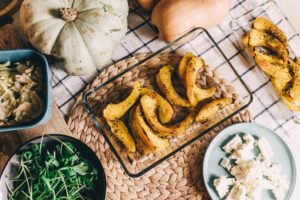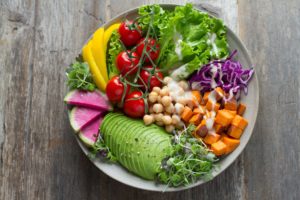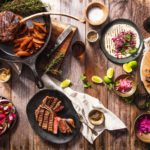Nutrition plays an important role – the proper functioning of organs and systems of the body depends on it. With food, the student must receive all the necessary substances: proteins, fats, carbohydrates, minerals, salts, vitamins, water. Fats are a necessary component of food to meet students’ energy needs. They account for 20 to 30% of total daily energy expenditure. Students should also be sure to eat enough fiber, as it is necessary for normal digestion. Proteins, in turn, are the main material used to build tissues and organs. Today, we will share some healthy eating advice that no student should ignore.
Healthy Ways to Fuel Up!
Modern students, according to nutritionists, should eat at least four times a day. Breakfast, lunch, and dinner should be proper hot meals and not just snacks. The body of a busy student requires the use of milk, cheese, dairy products (or other sources of calcium and protein, including plant-based ones). The deficiency of calcium and phosphorus can also be prevented by eating fish. As a side dish, it is better not to use potatoes or pasta, but rather rise, buckwheat, as well as stewed or boiled vegetables and fresh greens. During the day, students should drink at least one and a half liters of fluid, but not carbonated drinks, fruit, or vegetable juices with added sugar.
The Most Important Meal is Breakfast

Choosing Your Diet
There are products of plant and animal origin. Plant-based foods are usually rich in carbohydrates, but low in protein. Animal-based food, on the other hand, contains a lot of protein and very few or no carbohydrates. Knowledge of the properties of a product allows you to use it as efficiently as possible.
The highest amount of protein is found in meat, fish, eggs, and dairy products. However, plant products also contain proteins. Especially, many of them are legumes: beans, peas, lentils, soybeans. You can eat a balanced, healthy diet whether you eat animal-based products or not.
Healthy eating is a crucial part of healthy living as a student. Another big component of that is limiting your stress and getting enough rest. Many students really struggle with that, as they are typically swamped with assignments. A good way to manage your academic load is to browse websites that write research papers for you and order some papers. This way you can free up your schedule a little, and get some time to cook some nice food and rest.
Remember, if you are struggling to get your diet on track, then you can think about using a service like JM Nutrition to guarantee that you are getting everything that you need in your meal plans.
6 Healthy Eating Habits For Students

- Drink plenty of water. With a busy schedule, it’s easy to forget about it. If you are dehydrated, you will not be able to concentrate well. So while writing a good article or doing important research, drink a lot of water. Staying hydrated is very important for our health and the normal functioning of our bodies.
- Have healthy snacks on hand. When working on projects or articles, you can get hungry. When shopping for groceries and snacks, don’t just focus on your cravings. Get healthy meal ingredients to cook with, but don’t forget to grab some healthy snacks like nuts, fruit, or even healthy cookie, candy bar, or chip options.
- Don’t miss meals. When students have little or no time to eat, they often simply do not eat. If you are always learning, then your brain must have all the nutrients for research and maintain health for exams. But when your brain doesn’t get enough nutrients, it can slow down.
- Cut back on fast food. Limit the consumption of processed and deep-fried snacks. If you don’t have time to cook regularly with your busy schedule, do a meal prep once a week to have some ready-made options on hand.
- Make healthier choices. When you are tired, trying to meet a certain deadline, or just have a craving for some comfort food, you don’t have to order pizza or a burger – try and find options that taste great, but are less packed with fast carbs. You can find good substitutes – for example, get some roasted chicken instead of deep-fried chicken, rice noodles instead of pasta, etc. There are always healthier alternatives.
- Don’t deprive yourself of the food you love. If you cut out all the foods that bring you joy, the diet is not going to last. You are allowed to eat whatever you like, just indulge in moderation. You can have a “cheat meal” sporadically, just make sure that junk food is not your regular choice.
Eat Well and Stay Healthy
Satisfying the body’s need for energy is not all – although students need that fuel, it’s best to choose the nutrient sources that will keep you healthy, too. Students need to eat a variety of foods that contain sufficient amounts of protein, fat, and carbohydrates. Do your best not to miss meals, and make healthier food choices every day, and you will stay on top of your game!
Interested in eating more healthy for life?
Listen to our friends over at Wellness Force Radio to learn about the “5 Must Have Nutrition Fundamentals”








 Running Belt vs Fanny Pack: Know the Differences!
Running Belt vs Fanny Pack: Know the Differences!
I find cooking is a great way to set yourself up to eat well and improve your health. It gives you complete control over what you’re eating. It’s also a great skill to master as time goes on.